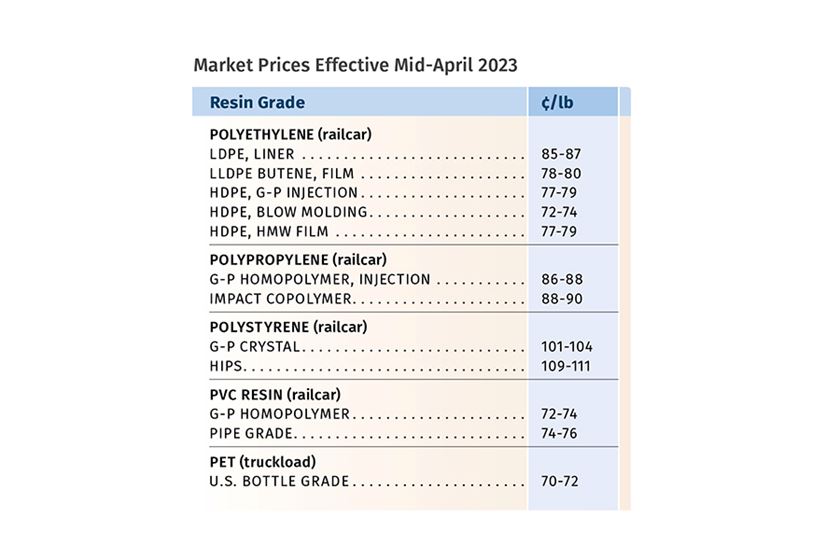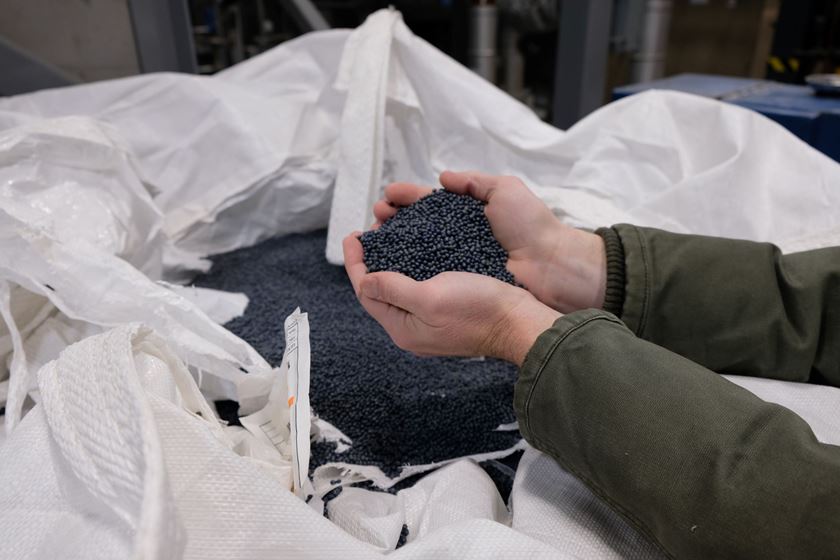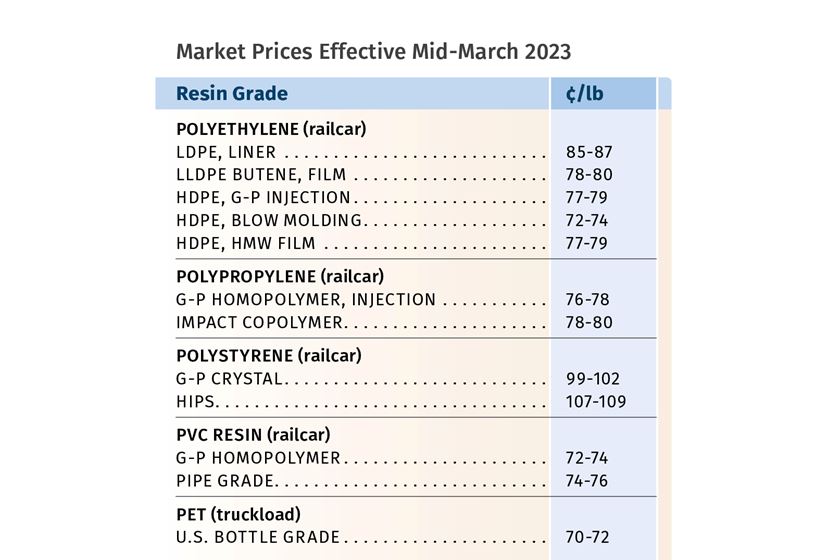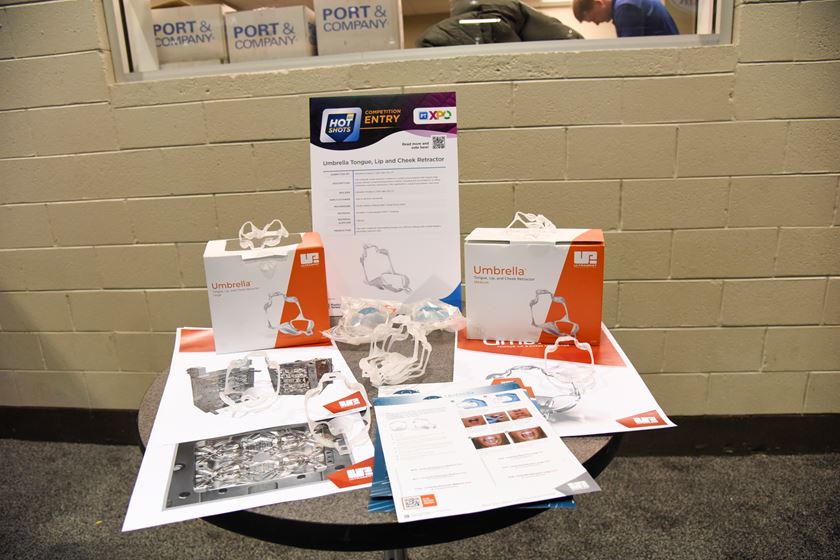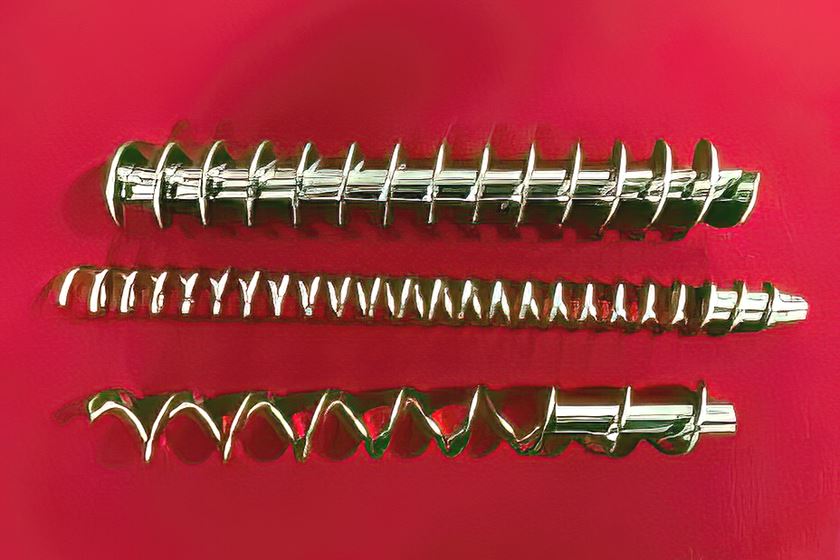NOVA’s BOPE-HD Film Resin Gains in Globally Available Flexible Food Packaging Applications
Positioned as a recyclable packaging alternative to traditional BOPET films, BOPE-HD film is now available from companies such as Interplast, JK Materials, Oben Group, and Polivouga.
Edited by Lilli Manolis Sherman
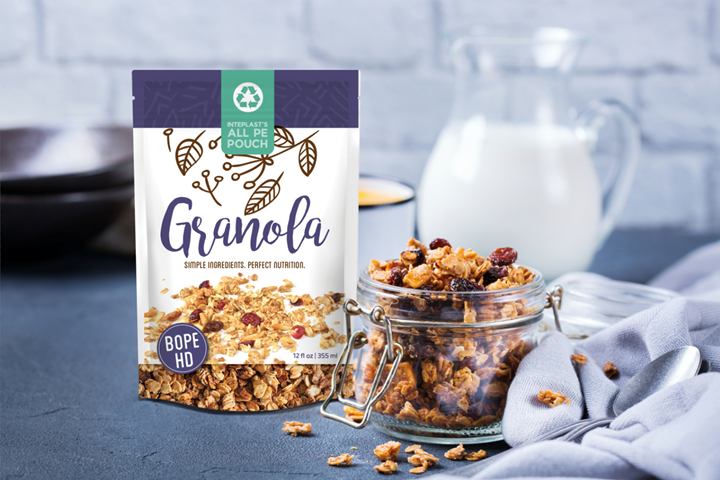
The world’s first BOPE-HD resin, Surpass TX150-A, specifically designed to run in the tenter frame process launched by NOVA Chemicals in 2020, is now being successfully produced by biaxial film manufacturers across the globe into a fully recyclable alternative to traditional, non-recyclable, mixed material films for flexible food packaging, particularly BOPET. Strategic relationships were formed between biaxial film manufacturers and NOVA, to deliver the BOPE-HD films to market, and meet the growing global demand for fully recyclable packaging. The collaborators include Inteplast (U.S.), JK Materials (South Korea), Oben Group (Ecuador), and Polivouga (Portugal).
Asked why BOPE-HD films are more recyclable than BOPET films and whether they are recycled with their bottle-grade counterparts, Owen Lightbody, NOVA’ application development team leader, notes that flexible and rigid plastics undergo different collection and recycling processes, i.e. they are not co-mingled. “Recycling of rigid plastics is well established while recycling of flexible is just now emerging. Monomaterial packaging, like this development (BOPE-HD) are critical, as it simplifies what is actually recyclable and produces a higher quality recyclate. BOPET (PET) used in flexible packaging is combined with PE to make a PET/PE film. This film is mixed material and not recyclable. Replacing BOPET with BOPE-HD results in a monomaterial film that can be recycled in the flexible packaging stream.”
According to Interplast’s R&D director Rafael Bayona, achieving a fully recyclable, lightweight, and flexible package using BOPE-HD required focused innovation and collaboration. “Producing BOPE-HD film was not a simple process. This was a major transformation that demanded persistence and dedication, and we are confident in our ability to reliably produce BOPE-HD film. The collaboration and feedback we have received from our customers has been a key factor for our success.”
According to NOVA, converters purchasing BOPE-HD films can expect a high-performing and sustainable product ideal for various applications such as meat and poultry, cheese, seafood, snack food, carton liners, baked goods, fresh produce, frozen foods, deli bags, and more. For example, Spain’s packaging company Aurum Process Technology, leveraged BOPE-HD to enhance their highly efficient aseptic industrial cooking and packaging method, T-Sensation process technology. This effort resulted in finished particulate food, ready meals, and pet food in fully recyclable, mono-material packaging.
Instrumental in bringing the supply of BOPE-HD online is Brückner Maschinenbau (Brückner), the world’s leading supplier of production lines for manufacturing biaxially stretched films. Brückner has sold 18 BOPE/BOPP hybrid lines worldwide, with nine lines already in operation. These lines allow for additional capacity, which is key to the continued development and production of BOPE-HD solutions. Packaging equipment suppliers, such as Effytec, which supply horizontal form-fill seal manufacturing equipment also support the adoption of fully recyclable films containing BOPE-HD by providing packaging solutions to converters.
RELATED CONTENT
-
In-Mold Labeling: Electrostatics Are the Way to Go
Applying a static charge to hold the label in the injection mold eliminates the need for vacuum ports that addsignificantly to the cost of making and maintaining the tool.
-
Thermoforming: Ready for In-Mold Labeling?
After several fits and starts over the last decade, thermoforming IML appears ready for prime time, thanks to improvements in output and labeling technology. For now, the action is mostly in European packaging.
-
Learning to Master In-Mold Labeling
As in-mold labeling, or IML, attracts a growing following among U.S. molders, some are finding that mastering a complex new technology is no small task.















